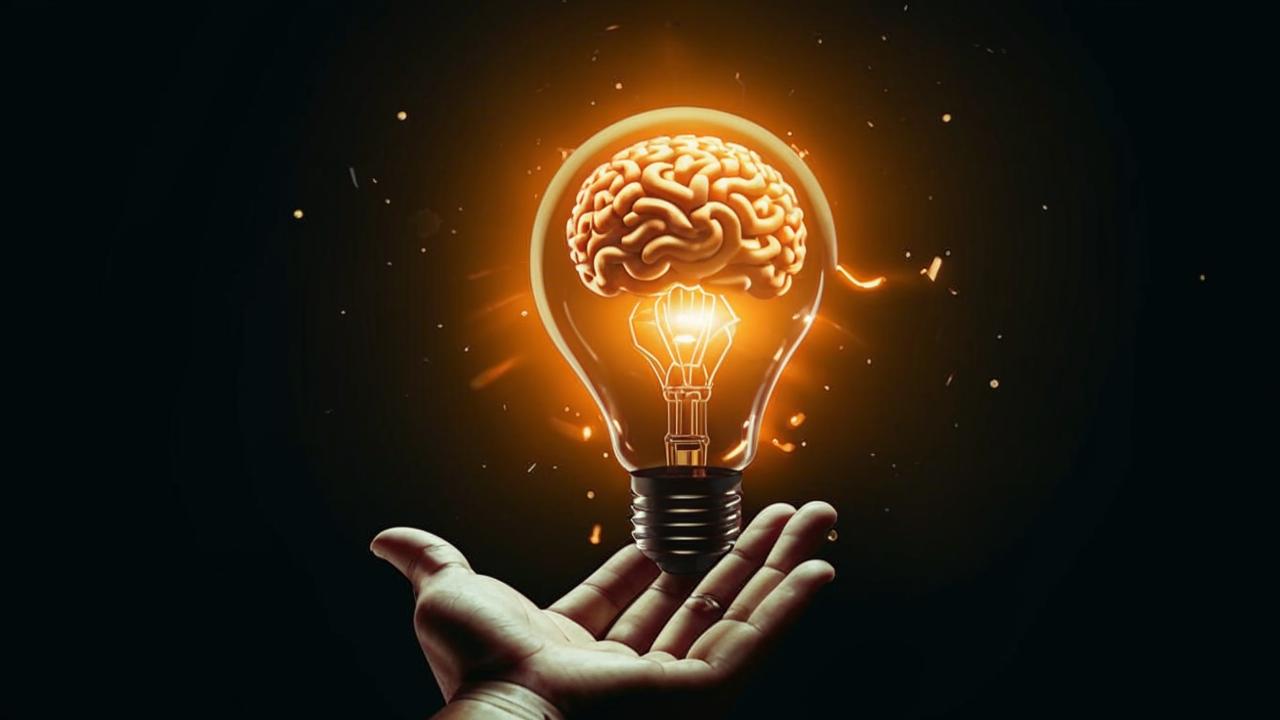
Gestalt therapist, expert of the online school of psychological professions “Psychodemia”
“Someone believes in intuition. Some don’t. Some trust their intuition so much that they rely on it for everything. Others tend to make decisions by following a calculation. What’s the right way? Let’s find out.”
What is intuition?
By definition, intuition is the acquisition of knowledge that bypasses reasoning through insight. In other words, it is the ability to sense and understand something without the use of explicit reasoning or logic.
We make some choices in our daily lives simply because we feel like it. And then they turn out to be right. Even those who do not believe in intuition have probably encountered something like this in their lives. Thus, it is worth recognizing that intuition as a phenomenon exists.
What is it needed for? The fact is that to make decisions very often we simply do not have time. Not because life has accelerated a lot now. Our ancestors did not have this time either. So intuition as the ability to anticipate came to us in the course of evolution. In addition, if we always made extremely informed decisions, it would make our lives unbearable. Imagine having to think about literally every step of the way!

Our brain strives to optimize all processes. Including decision-making. Sometimes we do it “on emotion”. This condition is also necessary, because otherwise we will never be able to make some decisions. Especially if we choose between approximately the same options.
In addition, having made a choice on emotion, we more easily assign it to ourselves. For example, Dutch scientists found that people who relied on their intuition when making a long-term decision (buying a home or a car) were 2.5 times more likely to be satisfied with their purchase than those who carefully weighed the pros and cons.
Decision making in many areas is now optimized through digitalization. A computer is able to analyze a large amount of data from different areas and give an answer that will be as effective as possible. But firstly, it is not a fact that you will like it. And secondly, it requires you to spend a large amount of time and energy.
In some fields, despite the possibility of using computer algorithms, intuitive solutions are still the fastest and most optimal. For example, in modern chemistry, individual scientists still search for new compounds with given properties based on their experience.
Venture investments also require a certain flair to predict which technologies will develop further and which will stall.
How does intuition work?
If intuition is such an evolutionarily necessary trait, then why does it fail some people and not others? Why aren’t all venture capital investments promising and not all chemists capable of breakthrough discoveries?
The study of intuition is an interdisciplinary task. It lies within the fields of interest of neurophysiology, philosophy, psychology, and other cognitive sciences. There are actually many intuitions (professional, scientific, creative, etc.), but their mechanism of action is the same. It is based on unfolding the time perspective into infinity, i.e. from the current moment into eternity.
How do we know what is there in the future? From our experience. But our experience is not simple, but specially processed and assimilated by our brain.
In the post-war USSR, not even intuition, but telepathy was studied by physiologist Dmitry Biryukov, who invited the then famous psychic Wolfgang Messing to his institute.

Wolfg Messing
During the experiments it turned out that all the superpowers of a telepath are reduced to a very high degree of observation and sensitivity to what is happening to another person. And also to linking this material to his own experience. He read the subtle unconscious muscle movements of his interlocutors.
Scientists from Yale University in the 70s came to similar conclusions. They found that subjects with developed intuition predicted the future course of the experiment even before the presentation of stimulus material. They did it, again, by reading the movements of the experimenters’ facial muscles. At the same time, however, decisions were made with the same accuracy as those who did not use intuition.
Daniel Kahneman, an American psychologist and winner of the Alfred Nobel Memorial Prize in Economics, has identified two systems of our brain involved in the decision-making process. He labeled them “System 1” and “System 2”.
“System 1” operates on automatic – it makes decisions intuitively. “System 2,” on the other hand, is very meticulous and analytical. Kahneman did not define exactly which parts of the brain are involved in the first and second systems, as it is quite difficult to localize these areas precisely.
On the one hand, it is commonly believed that there is a clear distribution of roles between the hemispheres. The left perceives information as it is. Fast, efficient, but very straightforward. What is the left hemisphere responsible for? It makes a more subtle analysis. Its task is to perceive metaphors, hints and humor.
It is important to know that the distribution of responsibilities between the hemispheres is individualized for each person and is determined by both genetic and phenotypic factors. Moreover, any brain function performed by the left hemisphere can be realized by the right hemisphere as well. The only question is how successfully, quickly and reliably.
Performing complex tasks involves both hemispheres. For example, in order to transfer the knowledge received by the right hemisphere, it is necessary to systematize, transform, recode the information into speech or writing. Only the left hemisphere can do this. However, the right hemisphere is more resistant to interference in the process of thinking than the left.

To make quick and effective decisions, our brain resorts to so-called heuristics (from the word “Eureka!”). These are mechanisms that regulate the degree of reduction in the search for a solution to a problem. Or the branch of knowledge that studies the formation of new actions in an unusual situation.
The point is that there are no ready-made solutions to problems with a certain search area in our thinking. That is why we resort to heuristics. They are not equal to intuition. But if artificial intelligence does not have intuition, heuristics are quite inherent to it.
What kinds of intuitions are there?
There are many types of intuition, but let’s list the main ones.
- Strategic intuition. It flashes up as an epiphany, although before that it takes a long time to “accelerate”, processing a lot of initial data.
- Experience intuition. Activated instantly when conditions similar to those we have already encountered are detected.
- Physical intuition. Refers to the physical signals that accompany our emotions. Something stabbed somewhere, a headache, or, on the contrary, a sudden burst of enthusiasm.
- Emotional intuition. It’s about a sudden rush of fear, anxiety, etc. Yes, these are feelings that can be seen as signals of intuition.
- Intellectual intuition. Some people are able to see the solution to a math problem without resorting to calculations.
- Social intuition. It has to do with predicting the actions of other people.
So, intuition is ultimately based on our experience and how we interpret it. People who ignore it or internalize it in a fundamentally flawed way are not that rare. Why they do so is another question. But reflection and assimilation of experience require special conditions: when no one interferes with us or interferes with our interpretations.
How to develop intuition?
Sometimes the decision is given to a person extremely difficult. Thoughts run in circles, going over the pros and cons. And for every plus there is a minus.
In Gestalt therapy it is customary to work with feelings about this or that choice. After considering all the options and attitudes towards them, a person suddenly (it’s like an epiphany) makes a decision in which he or she is sure. But this is preceded by a lot of work. What kind of work?
It is necessary to start developing reflexion with self-reflection. Because only about our feelings and thoughts we can say something with a greater or lesser degree of certainty. And if we cannot interpret ourselves, what can we say about others?

The most important question for self-reflection is: “What was I like in this situation?”. Not in the sense of whether I was a hero or a “trembling creature,” but in the sense of sensual manifestations. Was I happy, calm, irritated, angry, helpless? What was happening to me at a particular moment? Perhaps there were many things and feelings arose in a variety of ways. Tracking your own emotions is a basic exercise in reflection. And developing your intuition.
How to do this exercise? Set an alarm clock for a couple or three times a day. When it rings, think about what is happening to you at that particular moment. What are you thinking, feeling, what would you like? You can write down the result. It will be a kind of diary of feelings.
It is good if the alarm clock will catch you in different situations – at lunch with colleagues, on the way home, or directly at the moment of work.
Gradually, the range of emotions will expand as you start to become more sensitive to yourself. There are now mobile apps that send a reminder several times a day asking you to track your state. As a result, they allow you to plot graphs of who or where you feel this way most often. For example, you’re calm at home and irritable at work. Or vice versa.

The question of what I want should be asked as often as possible. You can do this by looking in the mirror. But, not just like that, but with sympathy – as if you were talking to a loved one for whom you feel sympathy.
Look at your own face, at its expression. What does this person in front of you want? What is he ready to tell you or do? What feelings does he evoke in you? What will you say to him?
At the same time, in trying to reflect on one’s own experience, a person can go somewhere completely wrong. For example, trying to understand how one “should” do things. What is important to understand here? There is no abstract “should” in principle. You need to do what you need to do. In this particular situation.






